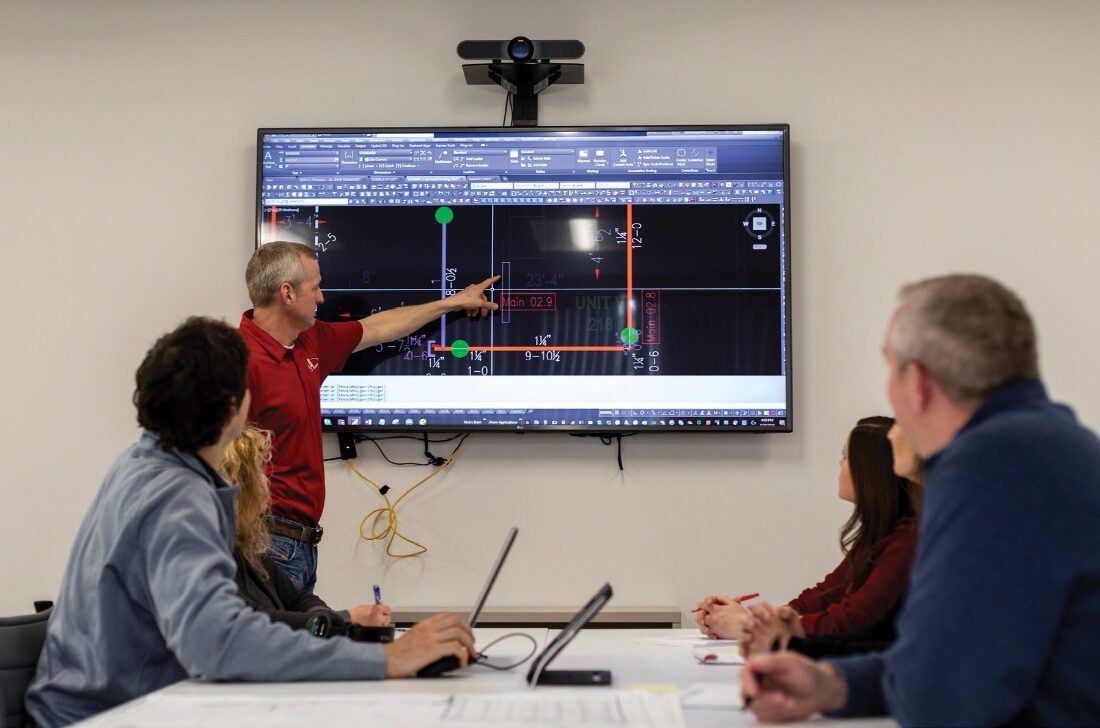J.F Ahern: Uncommon Story of Leadership Transition & Why It Matters
Started out as a small plumbing shop in Wisconsin, run by David Ahern and his son John Ahern. JF Ahern was focused on sanitary plumbing, steam, and hot water heating and as it committed to customer service, time led the small store to the forefront of local industry. Initially targeting the residential market, yet around 1920 as the company entered the commercial space, it never looked back since. The decision allowed it to get involved in new industries, including health care, education, and more.
During the past 140 years, Ahern has grown from a steam heating and plumbing company to a large specialty contractor and service provider with approximately 1,300 employees working from 14 offices across the Midwest. Tony Ahern and his brother, Tripp, chairman and CEO, are the fifth generation to run the business.
Generally, the company provides mechanical, fire protection services and fabrication contracting. According to the site, JF Ahern has been around since 1880, till now it still run by the family and may be more generations to come.
Business that run by family is that an effortless tradition? Or a lot of demanding work?
Choosing a Successor Is Challenging
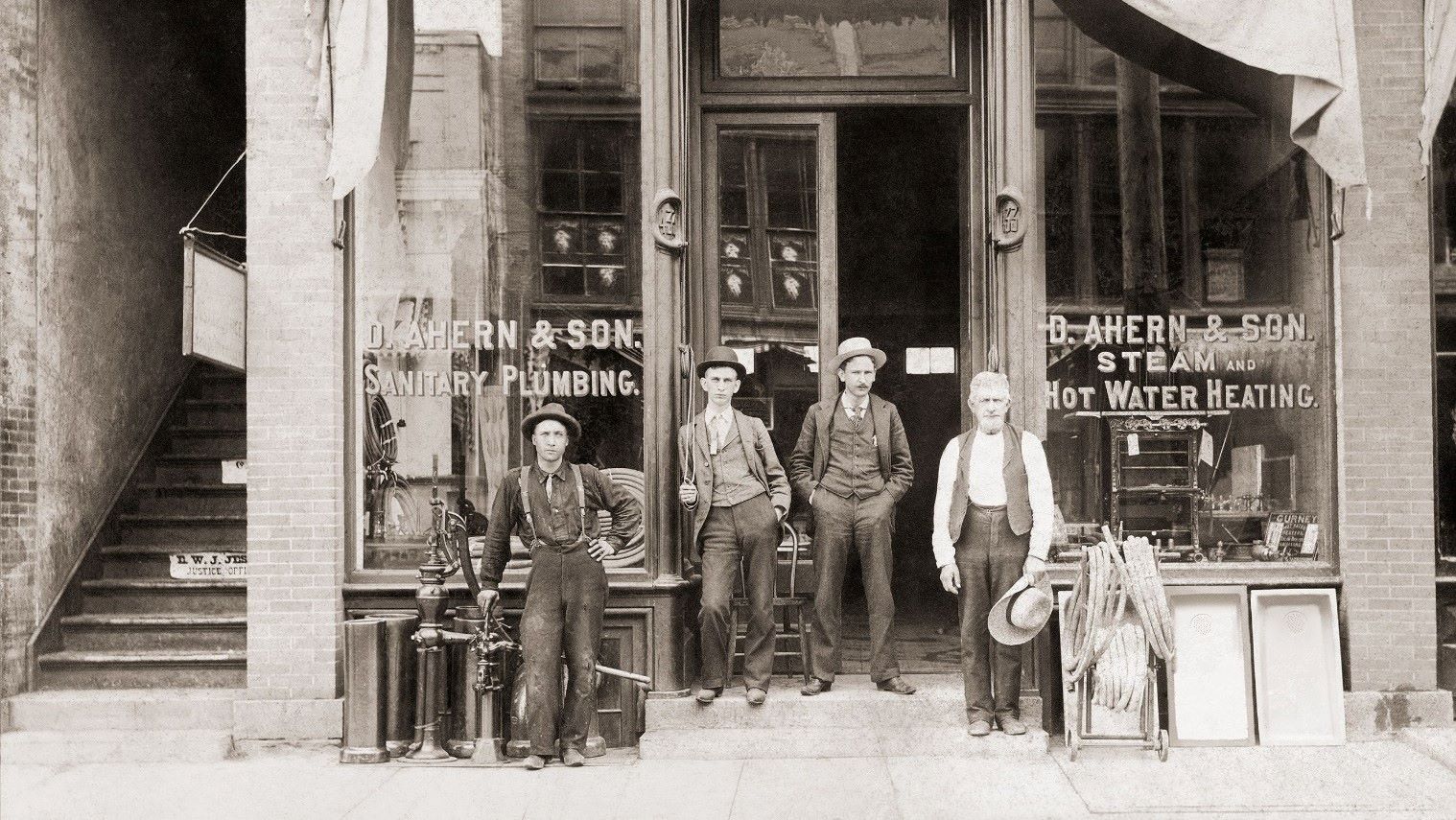
The brothers – Tony Ahern and Tripp Ahern – are the latest leadership to run the business of the family. From cutting grass, to sweeping the floors, both has worked for the company growing up. While the two was set up to returned to the family business after college and working elsewhere, they did not feel pressure to do so.
“I always wanted the opportunity to eventually come back to the family business,” says Tripp Ahern as Chief Executive Officer, who joined the family business as project manager, after working in New York City for a mechanical contractor. And Tony Ahern as Chief Operating Officer and the company’s president.
Even though, between the siblings, titles do not mean so much. Both has his own responsibility that have major impact on the firm. While Tony in charge of the day-to-day operation, all P&L units and support functional operations, Tripp focuses on overall strategy and works closely with the entire board of management.
However, as the Aherns put it on an interview with Insight on Business. “Handling the transition isn’t easy.” The tailoring and priming for the next successor usually happen long before the changing of the guard, which time often involves family members to overcome the natural tendency to cop out sensitive topics, he explains.
It was a luck strike, that both of the brothers were willingly to be in charge of their family legacy, and familiar with the business enough to run take over it smoothly. Since the key challenge in succession planning is to match the interests of children in the family with those who are most motivated and have the skill to do the jobs.
“Not all your children necessarily may want to be involved in the family business. Even though this is your baby, it may not be their baby,” said Patrick Mehigan of Deloitte Tax, a partner who consults frequently with family businesses. “So, you need to find out if they are motivated to be a successor.”
There are also cases where one of the CEO’s children is the right successor, and to bridge the generational gap you have to find another manager from outside the family. It is fairly common that the second generation was not ready and instead plays as a bridge to pave way for the upcoming ones.
Intimacy as the Secret Sauce
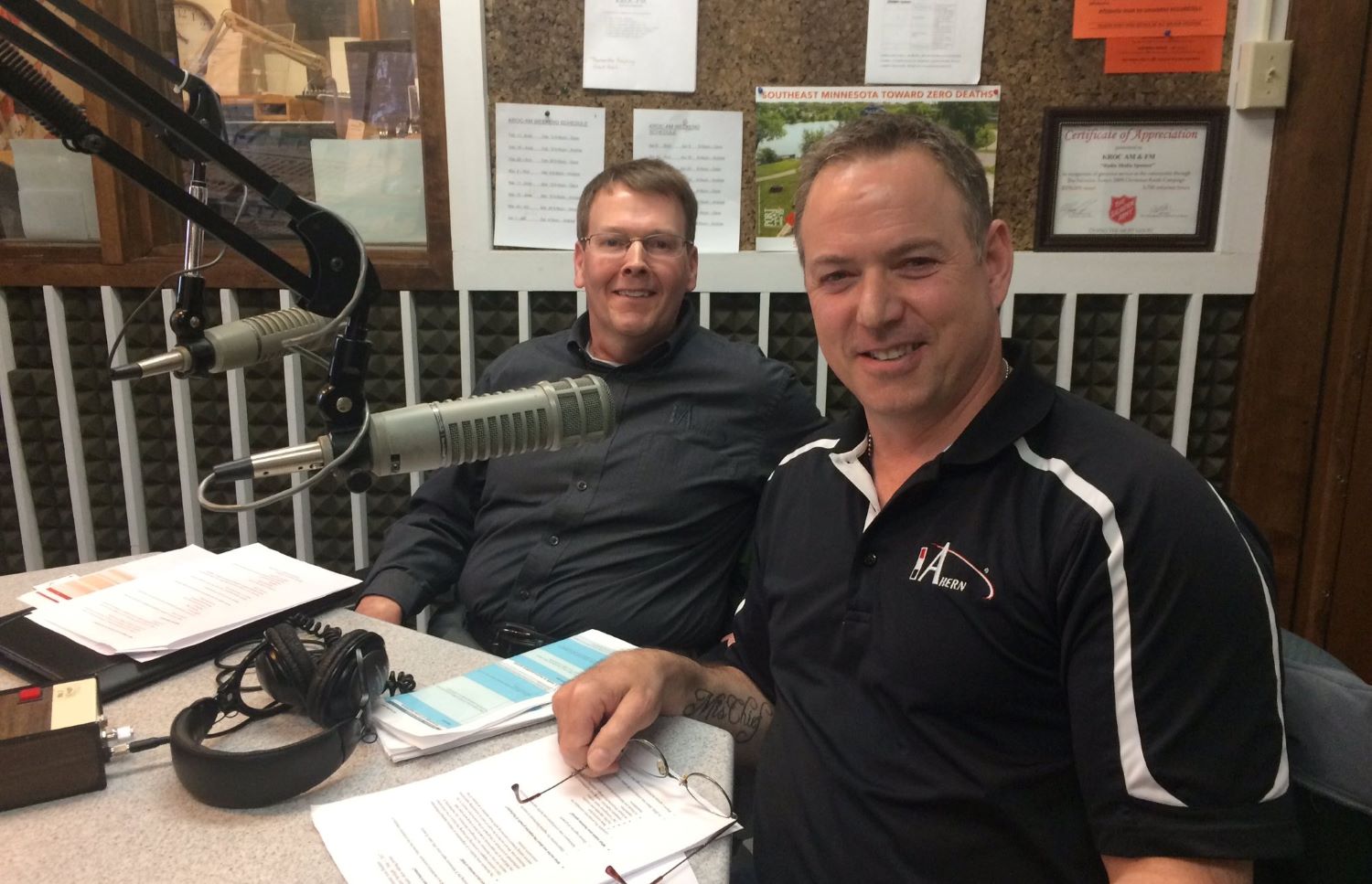
Yet, it has been for generations, the Aherns keep acing the succession plans with consecutive success. Then, what is the secret sauce?
Tripp says the family’s secret of planning for the handoff of power lies in intimacy. Start them young, he means, to be relevant to understand the business and close its people from an early age and not to procrastinate in grooming sons and daughters for their eventual leadership role.
The tip is to not concern about the plans itself but be more aware about the candidates that has clearly defined responsibility for succession. As you were being transparent on that, it would partly affect successors’ confident and boost their sense of responsibility, later on is their performance.
At the same time, it is critical having outside voices on the board of directors, not only as best wings for business oversight and cleverness, but they can also be extremely helpful with some of the family issues that can be challenge for your business.
The brothers explain, the company success of peaceful transitions was all credited to how John Ahern – their father and other seniors of the family understand the core spirit of family business and did not cling too long to its leadership. Lack of preparation and communication with the offspring who may be asked to take the helm is how companies fall short on, according to Tony.
“In some cases, they’re somewhat frozen by the decision itself — to pick a successor — so that they frankly don’t make that decision until they’re gone,” Mehigan said. “Or it’s done and, in their will, but they could have done it during their lifetime.”
How seniors at Ahern had empowered new successor early enough has enabled themselves to watch the company get revitalized under new leadership. And together figure out how they can do it better!
The Aherns also stress on a few questions that you should reflect on as planning on a succession. Is the family prepared for being responsible owners? Are you training and preparing family members properly? Is your planning for the business consistent with what will help the family be cohesive?
The Necessary Investments
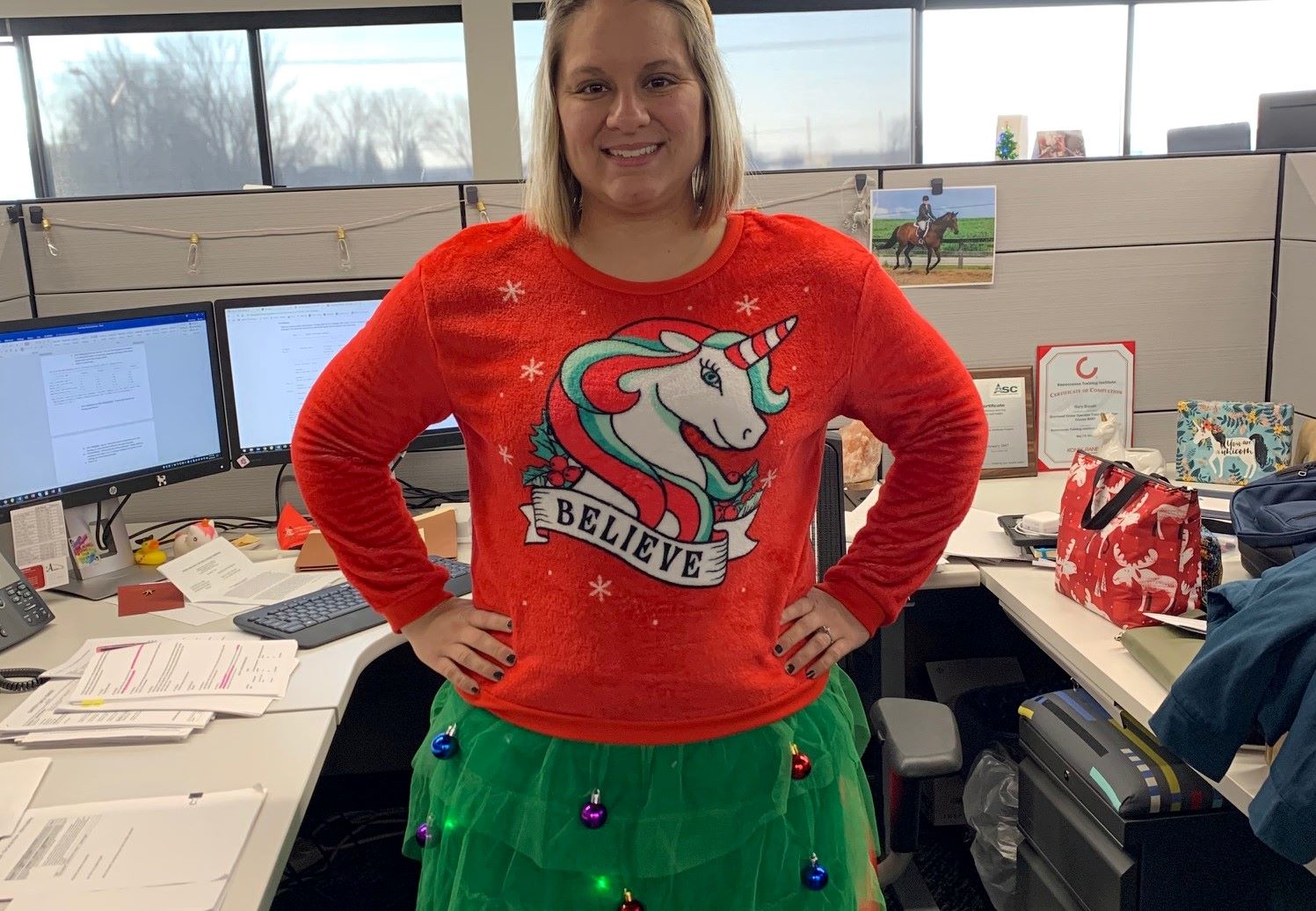
Another tradition that explains how the company stands out from its rival lies in its belief of good investment. And as the Aherns put it, good investments are rooted in people, as long as your people are well trained with processes and equipment that could provide them the best working environment. That is where you see happy customers, they are here only because of your happy employees.
“The decision to invest in employees is a differentiating factor,” says Tony.
One of the evidences, the executive recalls, was during the late 2000s when construction spending declined, the company, however, took that downturn as an opportunity to invest in its employee training and technology, so when the industry came back, it was well prepared.
Not just physically but also emotionally, you have to stay connected to motivate your people, let them know why they are working for you. With projects in multiple states, Tony tries to visit 20 to 25 sites annually. “I enjoy being out on the sites — both big and small — and get that unfiltered feedback from the field,” the executive explains, it is crucial for the teams to see you – the leadership oy there.
Especially as of this time, when economic downturn is a thing, and most employees share common concerns. As the leadership team, make sure your people are “in the know” about the impact of the downturn on the industry and company, as well as being transparent on plans to meet these challenges. It is essential that you communicate because that is how to build a caring culture.
Yet, what is the most sufficient way to invest in people?
According to the brothers, the key issue here is experience. When you only focus on building great managers, every time they run a pilot, they gain experience and make sure other lower part of the engine runs accordingly. Obviously, it is a good thing to have grand managers, however, they are also grand risks to lose. Imagine managers decided they will not show up to work!
Therefore, investment should be poured not individually but rather on teams. Make it horizontally across many layers to have really strong roots and foundation.
Second to employees is investing in innovation – whether it is in process or products – is another key principle.
“We came out stronger,” he says of the time following the recession. While the construction business is now booming, “investing in employees and equipment remains important today.”
As essential as diversify products, the decision to service those products was also pivotal to the company’s growth.
The company began to adopt the new air conditioning and added radiant heating to its capabilities in the 1930s. Another example of the team’s innovative approach is its early adoption of prefabrication, even though it is now common in construction, it was not back then. As one of the pioneers, prefabrication has allowed the company to improve turnaround time and help keep projects on schedule. Today, before shipping piping systems to their own construction projects and other contractors across the country, the company prefabricates it right in Appleton and Fond du Lac.
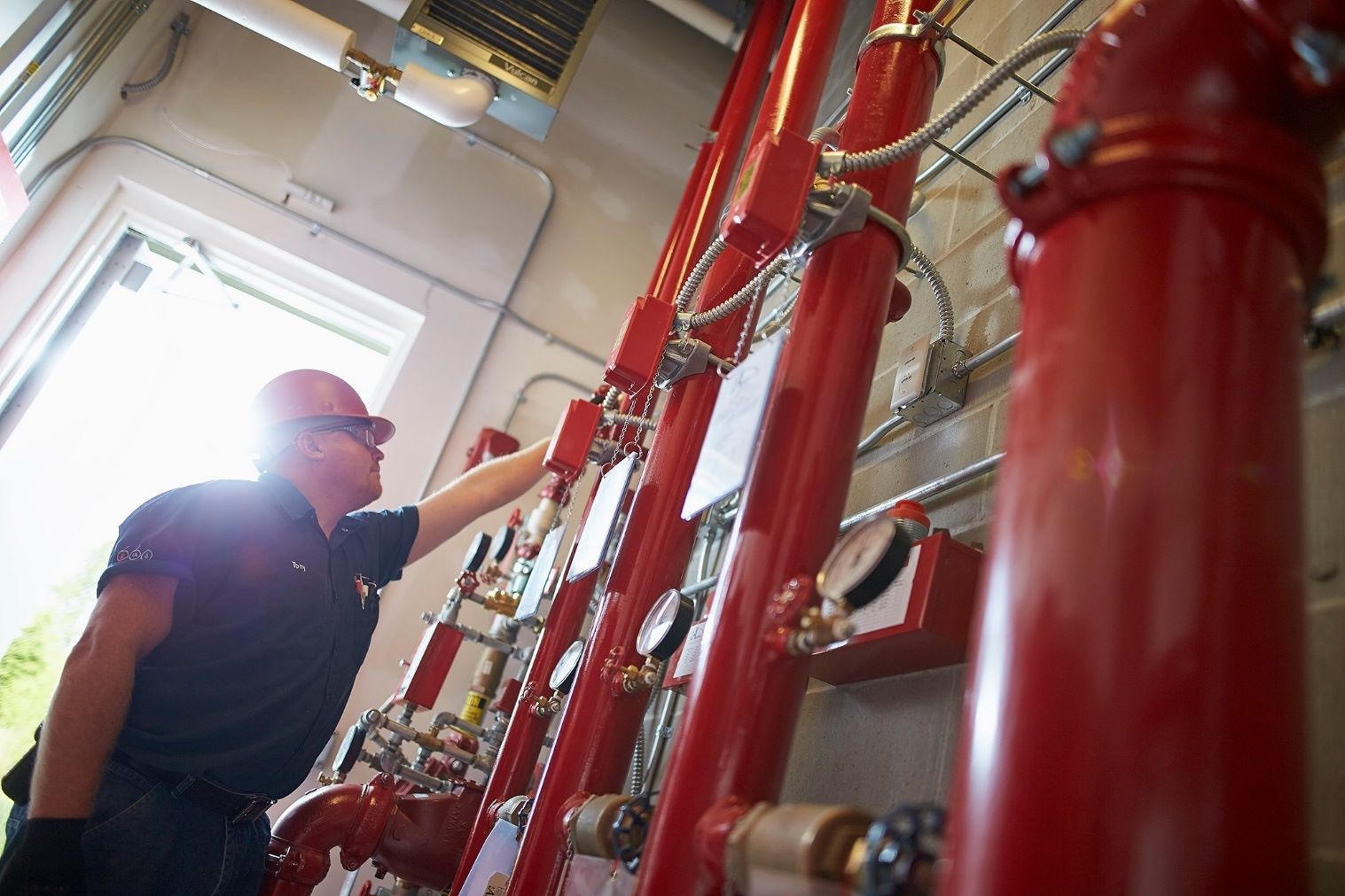
He adds that prefabrication improves safety — something the company is committed to. “Safety is first and foremost on our minds, whether it’s the shop or a job site or servicing products,” says Tony Ahern, adding the business has won numerous safety awards including the MCAA/CNA Insurance Safety Excellence Award, which meant Ahern had more than 1 million work hours without injury in 2019.
Once innovation is combined with technology, the end result is amazing to business, employees and customers, Tony says.
“We realize you need to be competitive and stay at the forefront of industry trends and technology to compete on jobs,” he adds. “Investing in technology also provides our employees with the latest equipment, which allows them to do the best possible job.”
While it is stacking up piles of loyal clients lists through the years, the brothers say nothing is taken for granted. Teams and managers, the Aherns says, are working to gain more efficiencies in their work, “we have to compete every day”.
A Culture of Hardworking People
As the company provides a variety range of services, it is a testament to the employees, who rise to the challenge of evolving with industry changes. According to the brothers, it is vital to nurture in employees the capability to adapt, which “enables the business to grow and is a catalyst to recruit and retain the very best of talent across all of its offices.” Eventually, the growth will benefit business and especially, employees who have risen through the ranks –some starting as interns to retire as shareholders.
“Watching our people grow and adapt to our customers’ needs and doing a tremendous job of satisfying our customers is really rewarding to see,” he said.
As Aherns brothers Tony and Tripp continues to take on their family’s work, so do employees, many having generations of relatives who are really bond and have contributed a lot to the company. To have such a legacy is ‘pretty cool,’ Tony explains, and the company strives ‘to do right by our employees at all times,’ as well as what is in the best interest of them and our customers, he said.
Which boils down to adapting to change while maintaining the core values of your existing culture. Driving this are people who want a culture of ‘dedicated hardworking accountable people that do the right thing day in and day out’ Tony says. By that, company will never jeopardize its reputation, but rather run as a professional business and keep a good family feel.
“Those don’t always line up, but they can if you work really hard at it,” Tripp adds.
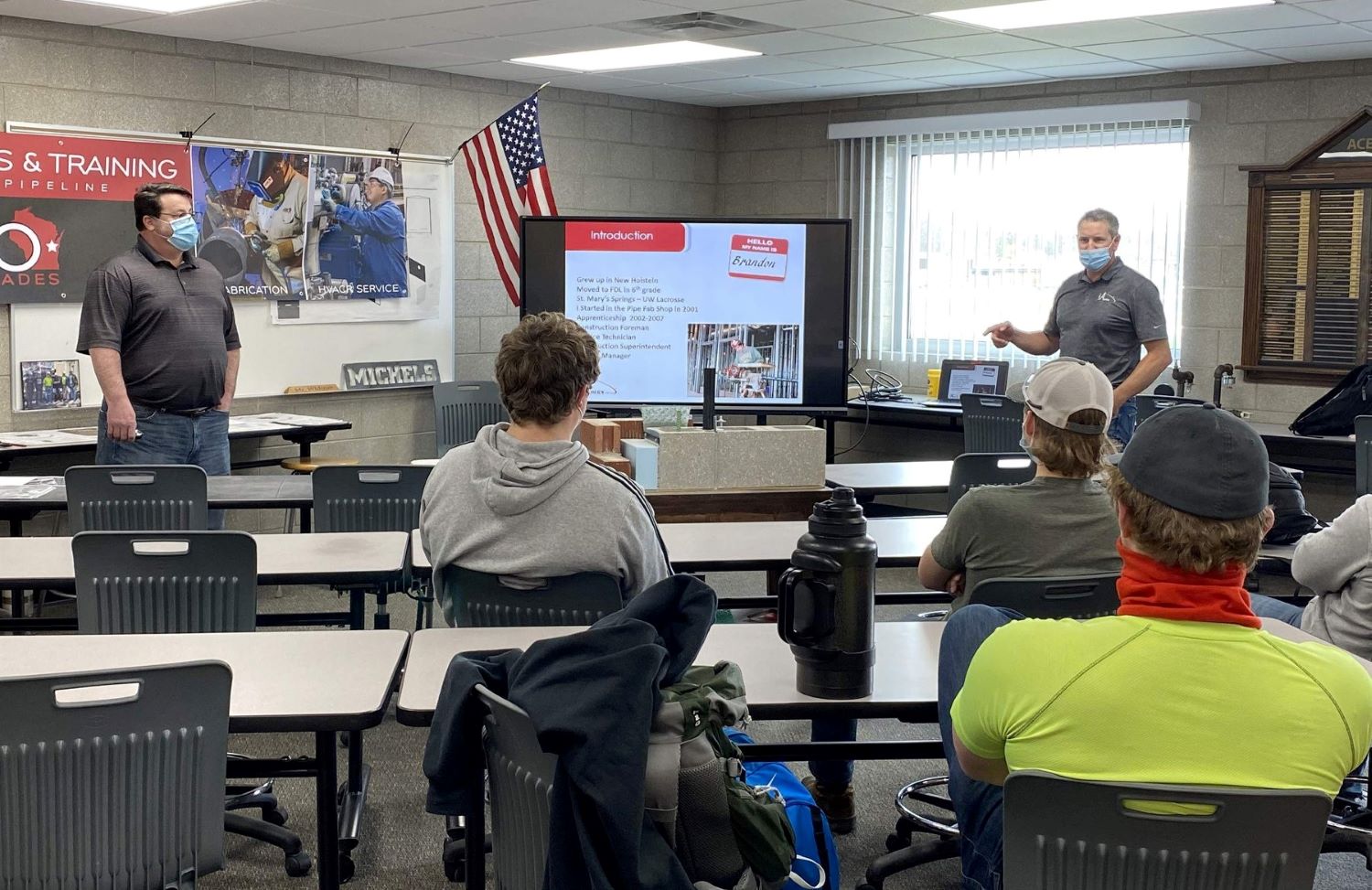
Of utmost importance is upholding safety. J. F. Ahern employs about nine full-time safety professionals and if a crew reaches a certain size, they will have a “dedicated safety professional” with them. The company also has invested in training of all kinds, including safety, and makes sure to give employees “the best possible tools so they can do the best possible work.”
“We have to have our people return home in exactly the same or better condition when they went to work,” he said. “This is risky industry, and we need to make sure we are always safety conscious.”
The Bottom Line
Turns out culture in family business is defined not only by its founders but also its generations of successors and the local theme, and family handoff of power was not effortless as it seems.
As there are always the up and down sides of everything, so there are in family business. Celebrated its 140th birthday last year, JF Ahern was a proud company that has successfully made it in both nurturing successors and expanding business.

